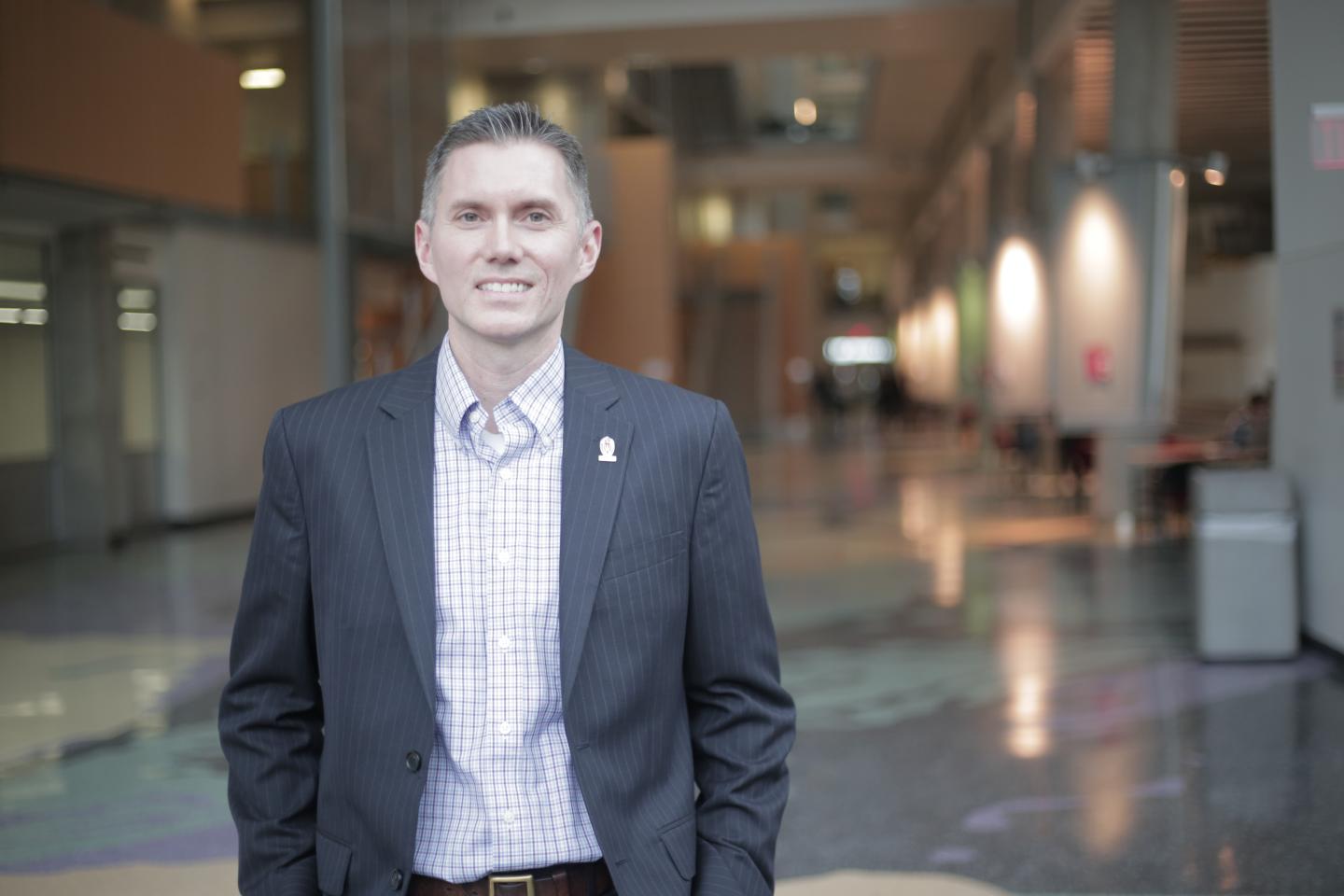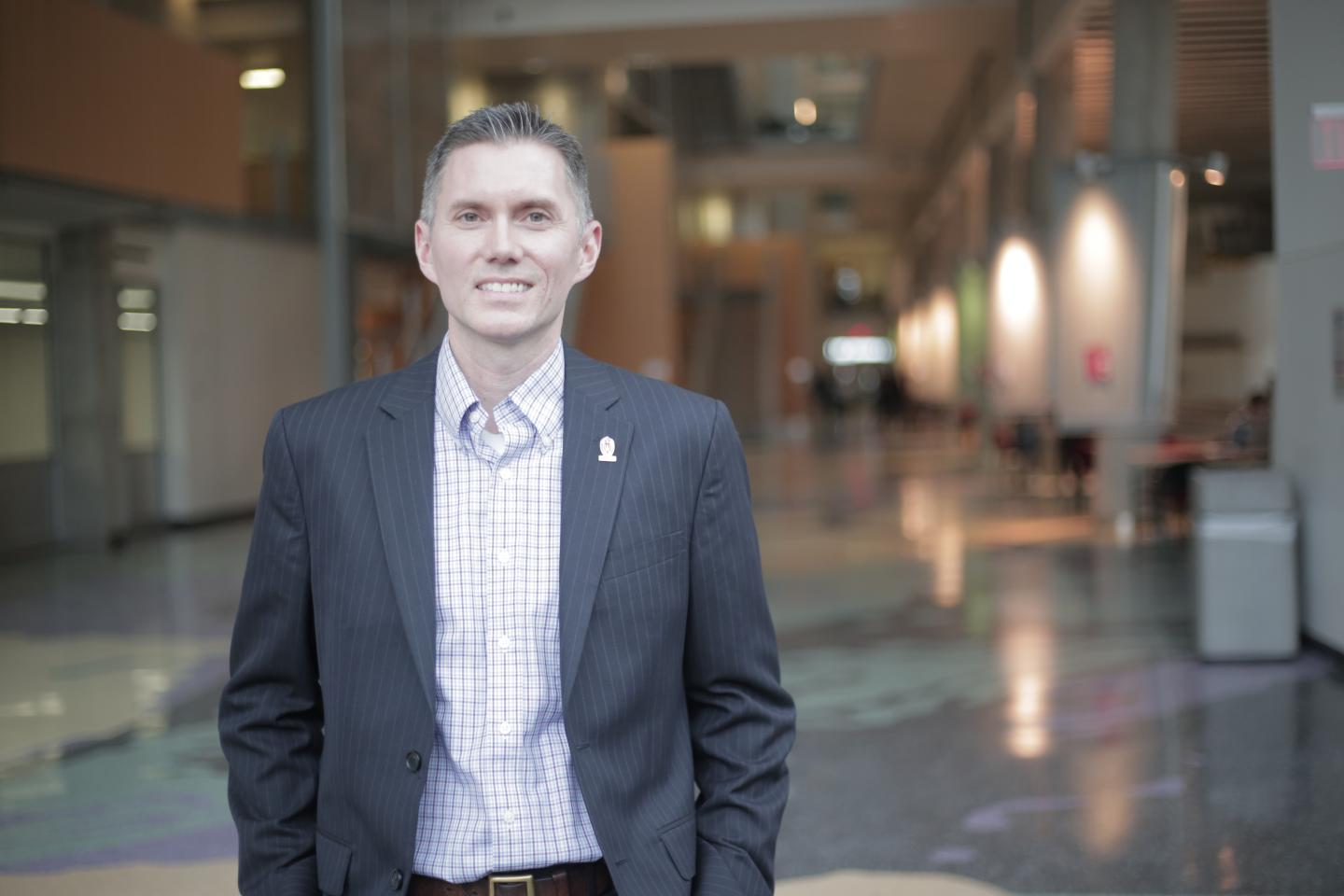
Credit: Stephanie Precourt/UW-Madison Engineering
MADISON, Wisconsin — The adage "put your thinking caps on" might evoke visions of an elementary classroom, where a teacher has just admonished cherubic little learners about to embark on a particularly difficult academic adventure.
In today's high-stakes world, where we all need to think, learn or act quickly, the adage still rings true: Mastering a new task, skill or information often takes the right environment, mindset, sharp focus and lots of hard work, repetition and time.
Yet, in some time-sensitive or high-pressure situations, a big boost in learning ability and speed from that proverbial thinking cap would not only be welcome, but critical.
At the University of Wisconsin-Madison, biomedical engineer Justin Williams is leading an effort to do just that.
With up to $9.85 million in funding from the U.S. Defense Advanced Research Projects Agency (DARPA), Williams and neuroscience experts from around the country will develop a low-cost, easy-to-use system — think "learning goggles" — that aims to accelerate learning by stimulating nerves in the head and neck to boost neural activity in the brain.
The system will be particularly useful for military personnel, whose safety and our national security depends on their ability to quickly master new skills or digest vast quantities of important information.
The concept is rooted in a promising new area of research, called targeted neuroplasticity training, in which activating peripheral nerves — those outside of the brain and spinal cord — can promote and strengthen connections of neurons in the brain.
Acupuncturists have known for centuries that the face and head are excellent places to stimulate peripheral nerves. For example, the auricular vagus nerve is located just below the skin and runs past the tragus — the little flap on your outer ear — and down through the neck.
Stimulating nerves such as the vagus can boost brain chemicals such as acetylcholine, dopamine, serotonin, and norepinephrine. During learning, those chemicals, known as neuromodulators, regulate changes in the connections between neurons in the brain — and brain function improves.
In recent experiments, other researchers in the field demonstrated that stimulating the vagus nerve while an animal was learning a basic task dramatically increased the speed at which the animal learned the task.
"It seemed to work, whether it was a motor task, memory, auditory task or something else," says Williams, UW-Madison Vilas Distinguished Service Professor in Biomedical Engineering.
Williams is among the nation's leaders in neural interface technology research and optimization. In 2009, for example, Time magazine included him on its list of the year's 50 best inventions for developing a "thinking cap": a brain-computer interface that allows paralyzed or "locked-in" people to type and send a tweet using only their thoughts.
With the DARPA funding, he and his collaborators initially will leverage their combined expertise to develop ways to discover, measure, monitor and optimize the brain's response during targeted neuroplasticity training.
Ultimately, they hope to use that knowledge to eventually develop a noninvasive, user-friendly technology that simultaneously delivers a stimulus, monitors neural response and dramatically accelerates learning.
"Can we optimize the production of neurotransmitters at the right time and in the right place in the brain during a task to enhance learning?" asks Williams.
Beyond military applications, the technology also might be useful, in controlled environments, for people who have learning disorders or who are afflicted with diseases such as Alzheimer's.
###
Williams' collaborators at UW-Madison include: Samuel Poore, professor of surgery; Zhenqiang (Jack) Ma, professor of electrical and computer engineering; and Aaron Suminski, senior scientist in neurological surgery and biomedical engineering. Collaborators from around the country include: David McCormick, professor of neuroscience and psychology at Yale University; Matthew McGinley, professor of neuroscience at Baylor College of Medicine; Robert Froemke, professor of otolaryngology and neuroscience and physiology at New York University; and Kendall Lee and Kip Ludwig, director and associate director, respectively, of the Mayo Clinic Neural Engineering Laboratory.
Renee Meiller, [email protected], 608-262-2481
Media Contact
Justin Williams
[email protected]
608-265-3952
@UWMadScience
http://www.wisc.edu
############
Story Source: Materials provided by Scienmag





